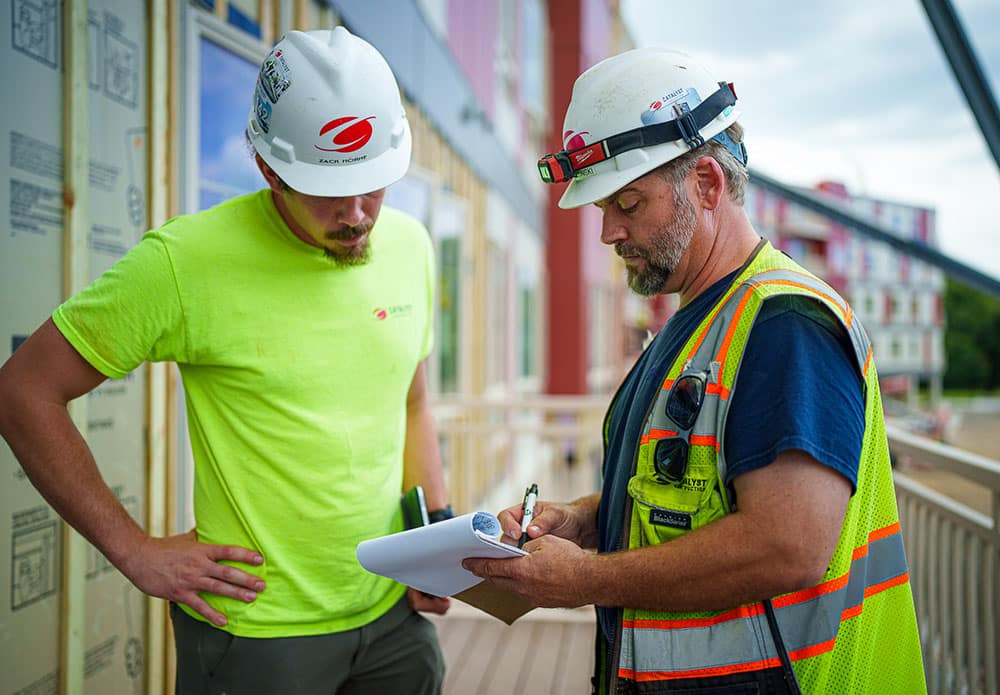How do people know when it’s time for students to return to school?
It’s hard to miss, isn’t it?
Schools send out all kinds of communication. Parents and legal guardians have their inboxes, mailboxes, and social media feeds flooded with information and invitations.
Stores rearrange their displays so you’re tempted to buy #2 pencils whether you need them or not!
If you live in America during the fall, it’s nearly impossible to miss the “back to school” season.
This happens annually. Intentionally. For a targeted period of time.
How effective would “back to school” sales be if they ran year-round? Or if the displays were haphazardly thrown together and placed in the back of the store?
An entire society pulls together for this annual event.
Pastors and church leaders can glean much-needed wisdom from the “back to school” season – especially when considering a major decision that could be a defining moment in the life of your church, like building a new building, renovating an existing one, or constructing an addition.
Leadership is largely about communication. Communicating a construction project’s details may not feel like it naturally flows from you to your congregation.
But it should – just like the “back to school” message comes through loud and clear during late summer and early fall.
Don’t Squander a Moment that Could Define the Future of Your Church
Building, renovating, or expanding church buildings is about so much more than structures or facilities. It’s about a congregation’s faith – and its future impact on God’s Kingdom. It’s about how a church can contribute to a community so that all may flourish.
I served as an executive pastor in the local church for 12 years. For the past six years, I have served churches by guiding them to make wise decisions regarding their buildings.
You don’t have to make the mistakes that I have made or I have seen many other churches make. You can maximize this moment!
Five Communication Mistakes Your Church Can Avoid in Your Construction Project
Of course, there are more than five! But in all the years I’ve worked and walked with churches in their construction projects, these are the most common.
You can do better. We can help.
1: Communication in Construction Happens Too Early
Do you know how people hear you? Pastors and church leaders are not free to “think out loud” or “process externally.”
Why?
People tend to hear your verbal processing as if you are giving them the plan, especially if your words are communicated in public venues. This can be a problem when you’re trying to make decisions – especially early on in the process.
That’s why you must refrain from prematurely sharing your dreams or hopes for a construction project. People will hear your potential ideas as if they are guarantees.
2: Too Much Detail is Given in a Construction Communication Plan
Details matter – but not for everyone. The entire process may feel overwhelming if you’re in the middle of a church construction project.
When you communicate, you need to put yourself in the shoes of those listening. They, like you, probably have situations in their lives that feel consuming.
The church matters to them. They most likely care deeply about the construction project and have skin in the game in the way of funding or serving.
But the church is just a part of their life. They have other priorities, concerns, hopes, and dreams. As they sit in your worship space, they have to fight to keep their attention on heaven because their hearts are filled with the worries of the world.
Your construction communication can captivate their attention by…
- Hitting on the high points (vision and purpose of the project)
- The benefits that the project will create
- Focus on what about the project inspires people
- Connect it to their lives beyond the church building (especially during the construction phase)
- Don’t focus too much on the logistical details (for example, the colors of the walls, the kind of flooring being installed)
3: Not Communicating with Transparency
Few construction projects follow a straight path. Setbacks and delays are nearly inevitable.
Mistakes can be made. Most people understand this.
Be honest. Be clear.
You must let people know if dates, details, or timelines get disrupted.
I have found that pastors sometimes feel like they may lose credibility when a construction project gets delayed or requires adjustments.
This is understandable. You’ve told people they can expect certain results. If you don’t deliver, it seems like you’re not a person of your word.
Paradoxically – admitting mistakes often increases your credibility.
Hiding mistakes, shading the truth, and shifting blame will threaten your trust with your congregation.
People expect twists and turns. Ensure they are made aware of what needs to change and why.
4: Overpromising and Underdelivering
A Construction project is a defining moment in the life of your church. Everyone feels it. And they look to you for guidance and clarity.
You may feel enormous pressure from your congregation during this season. And that may cause you to want to relieve the pressure people are feeling – and putting on you.
You may be tempted to promise things you can’t deliver.
Like timelines. Locations. Finances.
But even if you are leading, you are still not in sovereign control of the project. Many moving pieces are entirely out of your hands.
There is a tension between faith and planning. Being transparent with your congregation when you can’t answer their questions is not faithless. It’s being human.
Don’t promise things you are not 100% sure you can deliver. You’ll give people false hope and damage the trust you’ve built.
5: No Strategic Plan for Construction Communication
Little will cause more frustration, confusion, and delays than not having a strategic plan for construction communication.
- The right people must know the right information in the right order and at the right time.
- Leadership structures must be clear.
- Committees and tasks must be delineated.
- Communication lines must be clarified.
Developing and implementing a strategic communication plan for your church construction project has incalculable benefits. Some of the benefits include…
- Speeding up the decision-making process.
- People will know what they are responsible for – and, more importantly – what they’re not.
- That empowers them to communicate what’s necessary and with whom.
- A strategic communication process reduces conflict.
- People aren’t left to wonder why they were left out of certain meetings or not included in particular decisions.
All of this increases trust and transparency – starting with you.
When teams or committees are empowered to oversee components of the construction process, then you have to trust them. You should not have put them in place if you can’t.
If done well, this can increase people’s trust and appreciation for each other. It can also increase the people’s ownership of the church.
A strategic communication plan also allows the burden of construction communication to be shared by many. Not just you.
It enables you to build the church while a church building is being built.
Catalyst Can Guide You to and Through an Outstanding Construction Communication Plan!
“Back to school” sales happen once a year. Church construction projects are often once-in-a-lifetime moments. Pick an expert who has experience from vision to construction.
Are you ready to maximize this defining moment of your church?
You don’t have to do it alone. We’d be honored to guide you.
Catalyst Construction has helped 109 churches achieve their construction goals.
Reach out today for a free consultation!






